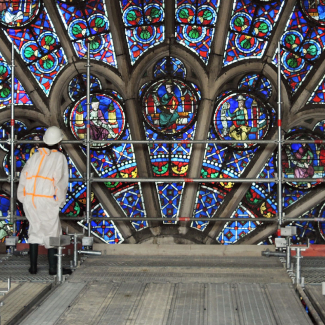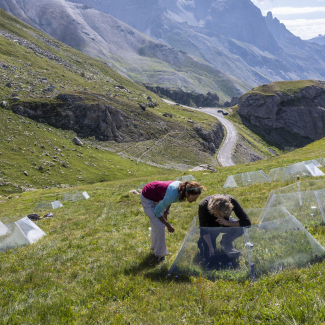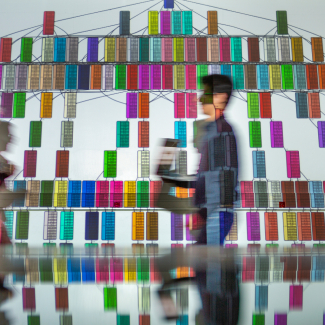
Sharing knowledge
The CNRS aims to raise awareness and understanding of science among all sections of the public and construct a bridge between science and society through a series of varied media and targeted events.
The CNRS is an ardent advocate of a knowledge-based society and an open science that is firmly anchored in its time. The organisation promotes the widespread circulation of knowledge and scientific culture and provides support for decision-makers working on the development of public policies.
Scientific mediation
The CNRS delivers and supports countless science mediation and outreach initiatives involving a range of audiences:
Explore the unexpected
The public are invited to explore the unexpected through the CNRS’s “Échappées inattendues” initiative, where they can discover and learn from scientists. These events or talks offer an opportunity to raise questions about our society, its transition, the state of our knowledge or even the major planetary challenges.
Out of the ordinary open days
During its 'Visites Insolites' (unusual visits) open days, the CNRS opens the doors of its laboratories, observatories, science hubs and research sites across France for the general public to dive right in to the heart of research and explore unique installations and experiences, face to face with the scientists that work there.
Three-minute thesis
The Three-minute thesis competition offers PhD students a chance to present their research subject in front of a diverse audience. Each student has three minutes to give a clear, concise but engaging presentation of their research project.
A Zest for Science on YouTube
“Zeste de Science” is a popular science YouTube channel that decodes the latest research via videos made by scientists.
Podcast Qu’est-ce que tu cherches ?
Le podcast du CNRS part à la rencontre des scientifiques, en découvrant leur quotidien, leur domaine de recherche, leurs avancées et leurs motivations.
The scientific mediation medal
The scientific mediation medal recognises scientists and research support staff for individual or collective actions, either on a specific project or their ongoing work, which highlight the value of science to society and help disseminate scientific information and knowledge beyond the walls of their laboratories.
Photo credit: © CNRS
Supporting decision-making and public debate
The CNRS Mission for Scientific Expertise (MPES) helps put the CNRS's multidisciplinary strength at the service of public action by bringing together and supervising pluralist groups to work on critical reviews of scientific knowledge on major societal issues. This collective expertise enlightens and supports public decision-making and debate.
The CNRS’s Impact Mission, launched in 2025, analyses the social, cultural, economic, environmental, and political impact of research in order to enlighten decision makers and public debate, among others. It conducts studies on a wide range of scientific topics by using an internationally recognized methodology and by retracing the “impact pathway.”
Read the article on the societal impact of research
The CNRS was also mandated by the French government to coordinate part of the ecological transition training given to French civil servants. This is an unprecedented move that makes France the first country to train all its public employees in this crucial issue to make sure it is a core element of public policy. To achieve this, the CNRS is involving the entire scientific community to construct a common base of knowledge covering all aspects of the ecological transition - climate change, biodiversity loss, depleted resources and the key action levers to use. Over 1000 scientists have volunteered to teach in these training courses.
Crédit photo : © CNRS

